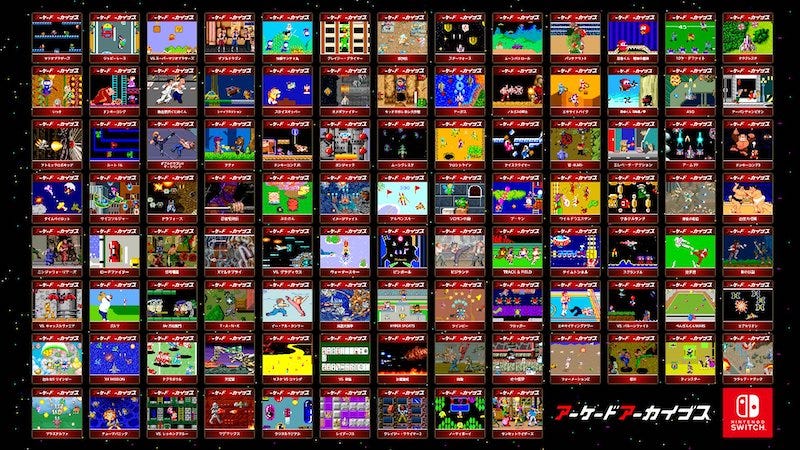
Featured Blog | This community-written post highlights the best of what the game industry has to offer. Read more like it on the Game Developer Blogs or learn how to Submit Your Own Blog Post
How do you discover when people find your game? 2
When it comes to planning and monitoring social media, your Steam page, and websites for discovery success, what tools should you use? We look at some potential lenses.

[The GameDiscoverCo game discovery newsletter is written by ‘how people find your game’ expert & GameDiscoverCo founder Simon Carless, and is a regular look at how people discover and buy video games in the 2020s.]
Welcome back, newsletter crew, to the sorta-Gamescom week. We think there will be lots more video games announced, adding to… the large amount of games already announced. (GAME DISCOVERY FIGHT, GO!) We’ll try to round it up after the fact.
How do you monitor your game discovery wins?

A lot of our recent newsletters have been data-heeeeavy. So we thought it might be good to go ‘meta’ for this latest one. We’ve covered ‘the road to discovery success’ for a large number of games. For example, we talked to the Among Us devs about their success last September!
But when it comes to planning and monitoring for discovery success, what tools should you use? As it happens, Steph from Clever Endeavour (Ultimate Chicken Horse) just “compiled a whole bunch of the tools I've used and resources that I use for community management” into this handy Notion document - and it includes a LOT of useful info on this.
There’s actually a great ‘Learning Resources’ page which links to a lot of talks & Twitter threads about community management, social media, and marketing. But we wanted to concentrate on the Tools & Tips area, which includes this section on Analytics Tools for ‘listening’ (“when others mention your account or certain keywords”) and ‘owned accounts’ (“provide insights into your posts and your account performance”).
One of the reasons we don’t go deep on things like this normally is that we’re not strictly marketers. And the readers of this newsletter skew anywhere from single-person indie devs to, uhh, incredibly experienced marketing pros. But we wanted to sketch out the various levels of monitoring we tend to see in companies we work with:
Reactive monitoring: many smaller - or sometimes medium-sized devs - will run Google Analytics on their Steam page, see a traffic spike there or on the Steam back-end in real-time, and then trace it back. (Either by URL, or by looking on platforms that don’t give referrer URLs so obviously, like TikTok.)
Proactive monitoring: these teams produce regular reports, often via internal or external marketing partners. These look at top inbound traffic or interest and classifying them into ‘owned’ or ‘earned’. It can be extremely helpful, as long as strategy and behavior changes as a result of the regular reports.
And then of course, a combination of the two is great - both real-time and trend-based. To go slightly deeper on this, I also quizzed Astrid Rosemarin, a former Evolve colleague of Steph, who is now Communications Director at New World Interactive (Insurgency: Sandstorm).
She noted: “In terms of social listening specifically: it's a mixed bag in terms of what tools cover, and at what level. Each service has different levels of access based on your pricing, and generating data and/or reports are a whole other thing that differentiates many of the tools.”
As for which tools work with which discovery platforms, Astrid adds: “Almost every tool will pull in a lot of data from Twitter. Facebook and Instagram are fairly restrictive, so level of access depends on what kind of deal the tool has done with the platform. Some are actively working on getting more and better data from Twitch. YouTube has some data, but basically no one touches the comments sections.”

It occurs to us that a lot of the larger non game-specific ‘listening’ tools not made by the KGB (above) are designed for a very Twitter and Facebook-centric world. But nowadays we think YouTube, Twitch, TikTok, Reddit, and IMGUR are the platforms game devs will get the best uplift from. So that’s one reason that Steph references Twitch-specific services like Sullygnome and Twitchtracker, in addition to a host of other omnibus tools.
There’s also the question of whether you can use one central tool to schedule and post across all ‘owned’ social media accounts. (Many of these tools, such as Hootsuite, try to provide both posting and monitoring - which in theory could be a delightful solution.)
In our experience, a lot of game devs just go and post natively on each platform. This is partly because, as Astrid pointed out to me, things like alt text, polls, and embedded CTAs are difficult to trigger from third party platforms. (And some social media companies actively discourage being able to schedule posts from third party apps!)
So these are complex problems. For unpaid posts, we think reactive monitoring (‘Hey, who just made a TikTok about us and caused that spike?’) is OK for many small and medium sized-devs. But we think you need a strategy layer on top of that (‘Looking at our stats, we should spend less time on Twitter and more time on IMGUR’), and it needs to be driven by discovery tactics that are truly working.
Then you can layer ‘strategizing & monitoring ROI of paid ads’ on top of that all, to make a truly towering data cake. And overall, you need a strategic marketing & discovery element in here for free, owned media which isn’t just ‘keep pounding those posts’. Overall, Steph’s list of free/paid analytics tools is a great place to get started. Thanks to both Steph and Astrid for the great info here.
The game discovery news round-up..

So let’s move on to the game discovery and platform link-a-palooza, shall we? Plenty going on again this week, and happy to highlight it all for your delight and delectation:
The latest drama in Epic vs. everybody: ‘Google’s ‘Project Hug’ paid out huge sums to keep game devs in the [Android] Play Store, Epic filing claims’. This isn’t super surprising, and Google’s comment acknowledges as much: “We’ve long had programs in place that support best-in-class developers with enhanced resources and investments to help them reach more customers across Google Play.” Will be interesting to see if it gets further weaponized in the ongoing lawsuits.
This interview with PlayStation Studios’ Hermen Hulst is particularly interesting when he downplays the PC versions of first-party Sony titles: “Typically, there have been about two years between the release on our platform and the PC platform… But you can rely on us to continue to create platform-defining exclusive content for PlayStation.” Still - there’s more PC versions of former PlayStation exclusives coming.
Microlinks: why big publishers are taking NFTs/blockchain seriously after Axie Infinity’s smash hit; here’s a useful GDD (game design document) template; all the Epic Vs. Apple weird legal filing ephemera that you missed, including Nintendo’s anti-Yakuza clauses (which are standard in Japan, btw.)
Vice’s Patrick Klepek did a longer piece on Steam games & Argentina, which includes some comments from me on what devs think about the issue. The piece also gets further into the monetization of Steam trading cards (see: Idle Master), something which is pretty fascinating and I’ll try to get deeper into soon.
Which publishers have released the most current-gen console games? If you look at this graph from Omdia’s Steve Bailey, the chart-toppers are Hamster Corp. (448, a selection pictured above!), Ratalaika Games (228), Ubisoft (194), THQ Nordic (187), and onwards through a number of other big publishers. Interesting to see a retro specialist and a porting specialist atop the chart, though.
In case you missed it, Epic Games Store is opening up its self-publishing closed beta, which “streamline[s] the process for developers to set up their own product pages, achievements, pricing, offers, and upload builds and updates on the Epic Games Store.” We still think being on EGS is worth it, so go apply and check it out!
Microlinks Pt. 2: this Pyramid Games stock market filing (check the PDF!) has full Steam wishlist & prologue/demo download numbers for their catalog, for the nosy; the SNKRX dev shows his median play time (5 hours, 5 minutes - looks good to me) in comparison to our Shapez.io data; Facebook’s really pushing VR (not games, but a good platform builder?) with its Horizon Workrooms showcase.
Finally, we’ve talked about Roblox as a game discovery platform, and we’ve linked to super-good, ‘actually has a conscience’ YouTube channel People Make Games before.
So it’s good to see this story from them contrasting Roblox’s $45 billion dollar market valuation (actually it’s almost $49 billion right now!) with their payouts to game developers, which we also noted were not exactly, uhh, best in class. Take it home, PMG:
[We’re GameDiscoverCo, a new agency based around one simple issue: how do players find, buy and enjoy your premium PC or console game? You can subscribe to GameDiscoverCo Plus to get access to exclusive newsletters, interactive daily rankings of every unreleased Steam game, and lots more besides.]
About the Author(s)
You May Also Like







.jpeg?width=700&auto=webp&quality=80&disable=upscale)








